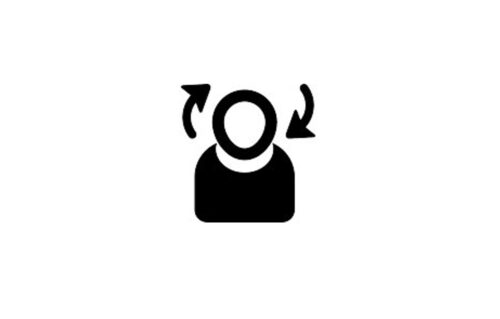Theda Skocpol and Caroline Tervo tell the story of Indivisible and its donor-driven succumbing to the siren call of “the DC-based nonprofit industrial complex.”
The Giving Review editors have long urged foundations and nonprofits to think hard before becoming involved in politics, in spite of their increasing willingness—perhaps even eagerness—to do so. Writing recently in The American Prospect, political scientists Theda Skocpol and Caroline Tervo provide an additional cautionary note.
Their article, “Resistance Disconnect,” tells the story of Indivisible, a network of local activist groups founded in the immediate wake of the election of 2016 as part of the nationwide “resistance” movement. Hoping to spark a progressive version of conservatism’s Tea Party movement, Democratic Hill staffers Ezra Levin and Leah Greenburg wrote and published “Indivisible: A Practical Guide for Resisting the Trump Agenda.” It proved such a hit with grassroots activists around the country that they “set up a website with an interactive national map where local resistance groups could register to attract new participants and receive further tips about how best to fight Trump initiatives in Congress.”
Although Levin and Greenburg initially “spoke dismissively of ‘the DC-based nonprofit industrial complex’ consisting of ‘professional advocacy organizations … think tanks, foundations and political action committees,’” they quickly succumbed to the complex’s siren call. Funded by the Tides Foundation, Indivisible’s founders established an interlinked 501(c)(3) and (c)(4), opened an office in Washington, and began hiring young D.C.-based professionals. Indeed, by August 2019, they had hired some 75 staffers, buoyed by successful fundraising overtures to progressive donors like the Democracy Alliance, which brings together “left-leaning millionaires and billionaires plus affiliated foundations and unions.”
In their pitches, Indivisible’s leaders “claimed close to 6,000 local ‘chapters,’” which proved to be “music to leftist donor ears.” The dollars rolling into Indivisible’s coffers quickly surpassed the totals raised by previous start-up nonprofit advocacy groups of the right or left. The organization took in $14.9 million in 2019: fully 53% from foundations, 27.8% from “major gifts,” and only 17.3% from small donations.
And yet, Skocpol and Tervo note, there was a cost for all this foundation-fueled activism. Indivisible devoted millions “to salaries, benefits, office fittings, and travel needs for dozens of professionals, as well as to the cost of programs they directly devise and control.” But while the central office would fire off a directive occasionally to its local affiliates, very few resources were devoted to building and nurturing a genuine grassroots network—the kind of network that had initially been music to the ears of the organization’s donors.
Comfortably perched, only occasionally linked
Over the years, Harvard-based Skocpol has been an eloquent critic of modern civic activism’s tendency toward “bureaucratic centralization,” including in her book Diminished Democracy: From Membership to Management in American Civic Life. Advocacy may originate in scrappy, genuinely democratic local activism reflecting grassroots goals and energy. But it’s all too quickly consolidated into sleek, well-healed lobbying groups comfortably perched in the nation’s capital, linked to citizens back home only by the occasional fundraising request.
Although Skocpol and Tervo are disappointed in Indivisible’s apparent determination to follow this familiar path, they think there’s still hope for it—“but only if left-leaning donors and foundations stop giving large checks to new waves of professional bureaucratization for symbolic ‘progressive movement’ advocacy.”
There’s little likelihood of that. Foundations typically don’t enter the political space to cultivate grassroots political engagement. That process is far too messy, time-consuming, and indeterminate. Left to their own devices, everyday citizens tend to direct their energies toward tackling immediate problems within their own communities, in ways that reflect a bewildering variety of political, moral, and religious preferences. As Skocpol and Tervo note, when committed activists actually spend time with such citizens, they quickly discover that there’s little appetite for the pure, unadulterated progressive ideological diktats handed down from D.C. headquarters.
“Win or lose,” Skocpol and Tervo observe, “the experience of canvassing in red and purple as well as blue districts introduced local activists to the varied outlooks for their neighbors …. Especially in suburbs and less-populous counties, real-world conversations drove home just how challenging it would be to advance left priorities and win elections.”
No wonder, the authors note, that efforts by Indivisible’s national office to corral its affiliates into the most avant-garde progressive causes and recruit them for the left-most candidates in the 2020 Democratic presidential race met with no success. The local activists knew that this would be electorally disastrous back home amongst their far more moderate neighbors.
The value of civic wisdom, and what donors are paying for
This sort of face-to-face engagement with neighbors is essential for the health of American democracy, as Tocqueville observed long ago. It’s not only how we learn the basic skills of democratic engagement, it’s also how we discover that our political opponents are not the demons we’ve been told they are.
But this isn’t what progressive donors and foundations are paying for. They’ve been taught by policy-oriented consultants and intellectuals that merely donating funds to local groups solving problems in their own idiosyncratic ways is a waste of money, no matter how much Tocquevillian civic wisdom may be generated along the way.
To achieve social justice—the new and all-encompassing goal of progressive philanthropy—it’s necessary to bring about fundamental systemic change within the American political order. And for that, nothing less is required than hard-hitting, single-minded political activism driven by trained experts at the highest national levels.
Groups like Indivisible are under intense pressure from donors to generate highly visible outcomes within the strictures of annual grant cycles. It’s a lot easier for young D.C. professionals to produce the raw material of grant reports by working with their pals on the Hill than to wrangle with a bunch of benighted, recalcitrant local activists far removed from the main action. After all, no one (except the occasional researcher) will check out national leadership’s claim that it’s in full command of 6,000 obedient local chapters.
These are the dynamics that are inevitably unleashed when nonprofits and foundations venture into politics. What may begin as a well-intentioned effort to bring grubby politics under the sway of the nonprofit sector’s idealism soon devolves into a very different scenario: nonprofits managed by ideologically steeped professionals working the halls of power in Washington like the most-hardened corporate lobbyists, driven on by the remorseless demands of wealthy donors anticipating immediate policy outcomes. Charity pays a high price when it sells its soul to political activism.






